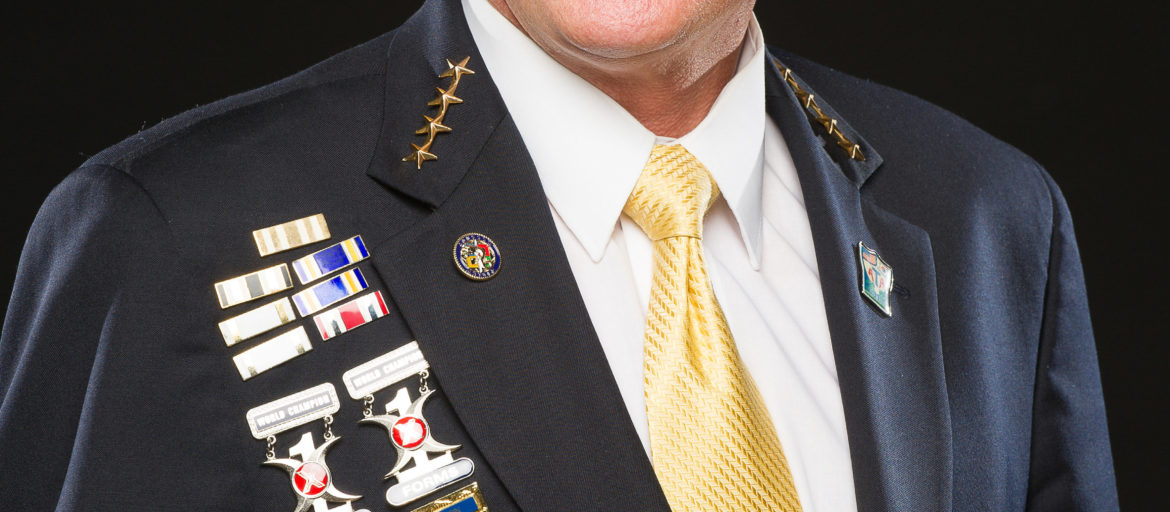What’s the bizarre connection between marshmallows and success? Well, in the late 1960’s, Stanford researcher Walter Mischel led an amazing experiment on self-control. He put a series of four-year-old kids into a room and sat them in front of a marshmallow. He said, “When I leave the room, you can ring a bell and have one marshmallow. But if you can wait 20 minutes, when I come back I’ll give you two marshmallows.” Then he left the room.
Can you guess what happened? Out of the 653 kids in the study, fully two-thirds gave in to temptation and ate the one marshmallow. The other third waited and got two marshmallows.
That’s when Mischel thought to himself, “Is there a link between waiting for the extra marshmallow and success later in life?” There was only one way to find out. So he tracked these children for 18 years, followed up with lots of questions and compared the two groups. Were there any differences between those who resisted temptation and those who didn’t? Yes. And what he discovered was shocking. The kids who resisted temptation and waited for two marshmallows…
- Didn’t get into as much trouble
- Were better students
- Planned ahead more
- Coped better with problems
- Made more friends and were more popular
- Got along with peers better
- Were more self-confident and determined
- Adjusted to new experiences better
- Got into better colleges
- Scored 250 points higher on their SAT’s
In contrast, the kids who gave in to temptation…
- Were more likely to become bullies
- Received worse teacher and parent evaluations
- Got into more trouble at school
- Had more behavior problems (such as controlling their temper)
- Had trouble paying attention
- Had a hard time making and keeping friends
- Had a higher BMI (body weight) later in life
- Were more likely to have drug problems
Can you believe it? You can actually predict a child’s success in later life with a simple test that measures self-control. Why? According to Mischel: “If you can deal with hot emotions, then you can study for the S.A.T. instead of watching television. And you can save more money for retirement. It’s not just about marshmallows.”
In another famous study on self-control, psychologist Angela Duckworth discovered a link between self-control and grade-point average. Her study (done on eighth graders) proved that self-control beats intelligence when it comes to grades. Yes, self-control was a better predictor of academic performance than even I.Q. The key? The ability to delay gratification. She said that her study shows “intelligence is really important, but it’s still not as important as self-control.”
Do these studies surprise you? Not me. I’ve known for a long time that a student’s mastery of self-control is one of the biggest factors in their success…not just at Karate for Kids, but also in everyday life. That’s because self-control pays off in every area of your life. With good self-control, you achieve more at work and in your career, have better relationships, enjoy better health and have better finances. Self-control touches every aspect of your life.
But while the Mischel study proved that kids are born with different degrees of self-control, the good news is that self-control is an attribute that can be learned and developed in ANY student, regardless of age. It’s a life skill. That’s why we do everything we can to help develop this skill in our students. Mischel says. “Once you realize that will power is just a matter of learning how to control your attention and thoughts, you can really begin to increase it.”
But what IS self-control? What goes into it? Self-control includes…
- Making the right choices
- Overcoming bad habits
- Controlling impulses
- Delaying gratification
- Focusing on the future instead of just the immediate moment
- Resisting temptation
- Keeping your goals in mind
Here are some of the ways we teach students self-control.
Goal-Setting = Incentive
First, we help students set goals and focus on the future. The various ranks, belts, programs and escalating challenges at Karate for Kids teaches students the value of delaying gratification. From a very young age, students learn to achieve something over time.
Also, we remind students of the goals they set (becoming a black belt or achieving their next rank) and encourage them to work hard towards that goal. Want a black belt? The only way to get there is by exercising self-control and making sacrifices in the present…to create a better future. Instead of sitting on the couch watching TV or playing video games, you need to get to class, stick to your commitments, and hone your skills. Goals help students focus on the future, instead of thinking only “in-the-moment”. A goal gives them an incentive for self-control. It helps them make good choices. According to Dr. Phil McGraw, popular TV psychologist, a child who has a goal “makes better decisions than a kid who doesn’t. Kids who want to win a scholarship, get a car or go to college reject options other kids don’t reject because they have a reason to reject them”.
Controls Aggression
Second, the traditional martial arts training found in BABINS KARATE FOR KIDS has long been proven to control aggression. Lots of evidence backs up this point. It’s what I call the “paradox of martial arts” – kids who engage in Karate for Kids training are simply less violent than kids who don’t because that training provides a healthy outlet for stress, it builds self-confidence, and it nurtures self-esteem. The most important reason karate students are less violent is because we stress self-control. For example, in a physical confrontation with an aggressor, we teach students to first defuse the situation and stay calm rather than yield to their emotions and strike out. This is called a “delay strategy” and it’s an excellent way to develop self-control. And sadly, with the rash of school violence we’ve seen on the news lately, I believe more kids need to learn this strategy.
Physical Self-Control
Next is physical self-control. This is accomplished when we simulate combat through sparring, doing self-defense techniques and competing in tournaments. We like to think of sparring as “playing tag with hands and feet”. We make it clear the goal is not to harm your opponent. Instead, you want to score points. This helps students develop control in the “heat of the moment” – they learn to hold back, restrain their emotional impulses and rein in their aggression. All of this training equates to a larger gap between stimulus and response. And speaking of sparring, if you’ve ever seen lower-ranked colored belts spar, you know they can be much rougher than black belts. Why? Because black belts have had years of training and have developed greater physical self-control.
Focusing Attention
Third, Karate for Kids teaches students how to focus attention. As a matter of fact, some parents join our academy mainly because they want help in controlling symptoms of ADD or ADHD for their child. Babin’s Karate for Kids has proven to do this. In a 2004 study, Dr. Kenneth Moran proved martial arts training boosts homework completion, academic performance, and classroom participation. On the other hand, martial arts decreases the number of classroom rules broken, times inappropriately leaving the seat, and “call-outs” in class. In fact, many parents of ADD / ADHD children consistently say that Karate for Kids is a “Godsend” for them.
Making the Right Choices
Finally – and most importantly – we arm children with the ability to make the right choices. We teach students how to avoid peer pressure, drinking, smoking and other risky behavior. Remember: Karate for Kids is NOT just about keeping your child safe physically or in a self-defense situation. Good judgment is a big part of martial arts because you won’t have to use your self-defense techniques if you learn to avoid risky situations in the first place.
Karate for Kids develops students mentally as well as physically. But developing self-control doesn’t happen overnight. Like any life skill, it takes time. However, I believe when our students possess a strong “core” of self-control, they’ll do a lot better in life. With all the evidence you’ve seen so far, don’t you agree self-control is a huge success ingredient in life? Could you think of any greater investment? Could you think of any greater payoff for martial arts training? Don’t touch that marshmallow!
—-Senior Master William J Babin




